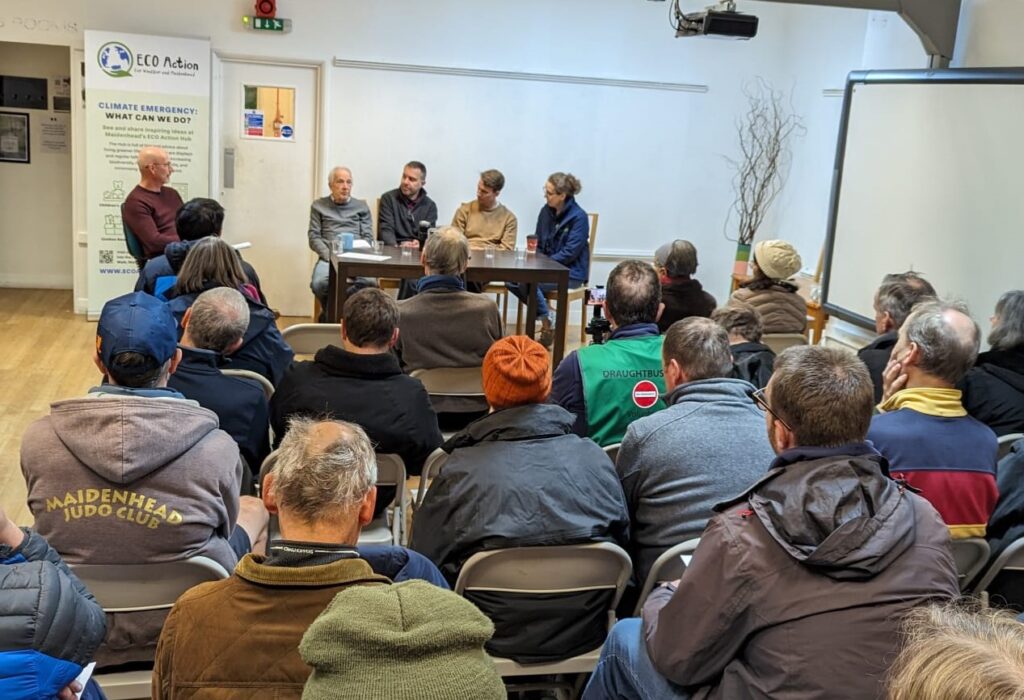
Interest in heat pumps is soaring because of the UK’s need to get off fossil fuels; and the government are now offering a grant of £7500 if you swap your gas boiler a heat pump.
Heat pumps don’t make heat so much as move it, like the way that the pump in your fridge moves heat out of the fridge to the kitchen, but in reverse.
The pump uses expansion and contraction of a refrigerant to create a multiplier effect. So, for every unit of energy that drives the pump, it gives back 3 or 4 times that amount in the form of heat. This is several times more efficient than a fossil fuel boiler – and far less polluting now that so much grid electricity is renewable.
Homes all vary, so the essential first step in thinking about getting a heat pump is to have a heat loss survey; this will tell you how much energy your home needs to be comfortable. It is wise to ensure that all reasonable insulating has been done – draughts, loft insulation, double-glazing etc – but heat pump homes do not need to be super-insulated.
Heat pumps send water round your radiators like a conventional boiler, but at lower temperatures (45-50 degrees compared to 65-75 degrees). This means it takes longer to heat up the whole house but the thermal comfort is steadier than with a boiler. With boilers we are used to instant heat which we then turn off at night; heat pumps work in a slow and steady way – including at night on the “setback” temperature. The radiators usually feel only slightly warm, even tepid.
There are heat pumps available now which use water at higher temperatures. This can allow a simpler swap-out-swap-in installation process (with lower associated costs), although they don’t offer the same efficiency as lower temperature pump systems.
Heat pumps vary, and can be designed for certain weather conditions. The heat pumps which are so popular in Nordic countries are specified differently from UK ones.
One point to bear in mind is that the moment your boiler breaks down is a bad time to think about getting a heat pump, especially in colder weather. It’s not a moment when people want to spend time researching new technologies and assessing heat loss – they just want to be warm, so they tend to just get a new boiler.
Video recording of the event is HERE
